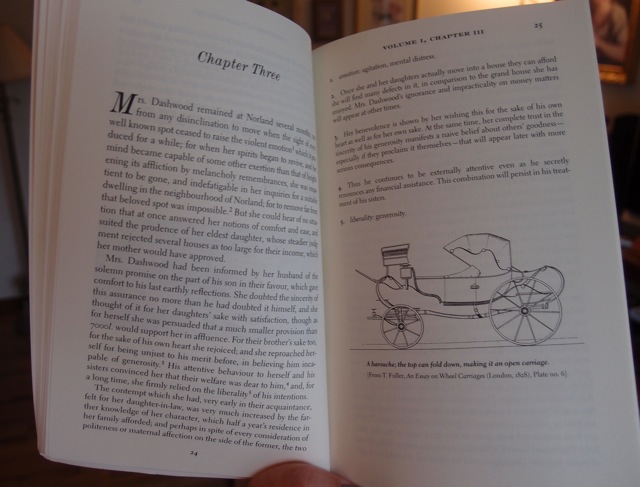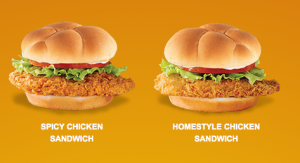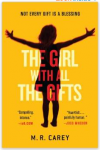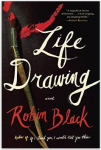“I really advise talking to yourself less.” That is something I just said literally out loud, to myself.
Things are usually a little grim at the beginning of a school year, which is more surprising now that this means everyone leaves me alone for a big chunk of the day. I can picture Earlier Me looking at the situation with open-mouthed astonishment: “You have the house to yourself for HOURS A DAY and you are STILL mopey??”
It’s odd how difficult it can be to do the things that I KNOW will make me feel better. I finally got a start on it by making those things very, very small. Eat one baby carrot. Walk around the house one time. Take a vitamin. Drink a glass of water. Sit in the steps for a couple of minutes and look at the trees.
One of my relatively new techniques to fight off sad/bad feelings is to try to be interested in something, ANYTHING. It doesn’t have to be a BIG thing: it can be the “one baby carrot” of interest, which would be something like “look up one thing on Wikipedia.” In this case I managed to reel in a bigger interest, which is Jane Austen.
I’ve tried Jane Austen books several times over the years: they’re so famous, and it’s embarrassing to me that I get her confused with the Brontë sisters (I also get individual Brontë sisters confused with other Brontë sisters), and I like to be familiar with famous things so I don’t feel dumb when the subject comes up. But I just couldn’t slog through the books: so many commas! so many now-obscure social practices! such odd dialogue, heavy with meanings that completely elude me! They’re about 200 years old now, and even the sentence structure was hard to get used to.
What broke me through was watching the MOVIE Pride and Prejudice, and I think my only real motivation was seeing Colin Firth as Mr. Darcy. I found, though, that it opened the book RIGHT UP for me: the people making the movie are from the same time period as me, so they basically translate it into what I can understand: even when the dialogue is quoted verbatim, the delivery of the line by Colin Firth a modern speaker does wonders for comprehension. I added the annotated edition of the book to my wish list, because I thought that would give me even MORE translating/help, plus I wanted to know more about things like “I can tell by one character’s reaction that she was just insulted—but why was that insulting?” I didn’t READ the book after receiving/unwrapping it, but I did add it to the To Read shelf. (This is a practice Paul finds very frustrating. He thinks if I don’t read the book right away, it means I didn’t really want it. He is incorrect.)
Next, encouraged by Pride and Prejudice (and by Alan Rickman and Hugh Grant), I watched Sense and Sensibility. I liked that one TOO! I still hadn’t read the annotated copy of Pride and Prejudice, but I added the annotated copy of Sense and Sensibility to my wish list, and after the next gift-exchanging holiday it was mine.
The same pattern happened with Persuasion. (I’ve learned, incidentally, that there is HEATED CONTROVERSY about which movie versions of each book are Best. I found it boring and stressful to read the debates, so instead I chose which version to watch based on which actors I wanted to see.)
Several times, I thought about reading one of the three annotated books, but now it felt like it had been too long since I’d seen the movies. It became one of those things I’d get around to SOME day, but for the time being there was a certain layer of dust involved.
Back to the current situation. I was moping around in my nice quiet house, feeling extremely stupid for feeling sad. My goal was to lug myself out of it with the help of a new interest, but nothing seemed interesting and also I was battling that silly feeling that it had to be an enduring/consuming interest or else it wasn’t worth pursuing. My eye lit upon the little stack of books, and I felt a flicker. Grabbing that flicker and feeding it some tiny twigs, I looked up Jane Austen on Wikipedia to see which book she wrote first; it was Sense and Sensibility. I ordered the movie from Netflix, and yesterday I watched it. Then I started reading the annotated book, which so far is GREAT.
I think this may be the first time I’ve read an annotated book. I was familiar with them in general because Paul has a few of them, and it is nearly impossible not to keep commenting aloud while reading one. Apparently.
This is what an annotated book looks like:

On the left page, it is the original book, but with little numbers next to things. On the right page is a list of those same numbers, with comments. On this pair of pages, the comments include:
1. A definition for a word whose meaning has altered a bit in 200 years.
2. A remark about what will happen later, and how this relates to the way a character is described throughout the book. (Annotated books are best if you’re already familiar with the plot, because the annotations are FULL of spoilers.)
3. What a passage in the book indicates about a character’s temperament.
4. What another passage in the book indicates about another character’s temperament.
5. Another definition.
6. A picture of a barouche, which will be referred to on the next page with a further explanation of what owning a barouche would have signified at that time.
Other pages have included relevant information about Jane Austen’s own life; comments about what “gentleman-like” would have meant at that time; comments on how something represents Jane Austen’s earlier writing style and how she might have done it differently later; comments about other popular books/ideas of the time; comments about what a person would have meant by such a remark; etc. For the most part, I like to read the entire page of book, THEN look at the annotations for that page; otherwise, I feel like the children are still here, interrupting my reading every sentence or two. Sometimes I do look at an annotation mid-page, if curiosity trumps disruption, or if something is too confusing without it.
Anyway, I love it. It’s like being in school again, but only the parts I liked, no “compare and contrast” essays to write. And it feels pleasing to be learning something, even if I have to fight off “What FOR?” and “What’s the point?” feelings. Learning something is good for its OWN sake, but it’s hard to get out of the habit of thinking of it as “to get into college / to get a good job.”
Plus, one of the things that MOST makes me feel like kicking myself when I’m looking back on times I was bored, bored, bored (a summer in college where the courses left me with TONS of free time; my first pregnancy, when I was unemployed) is thinking about how many things I COULD HAVE DONE with all that spare time. “Learn a LANGUAGE or something,” I scold those former selves. “Finally get around to reading books you feel you ought to have read! Get a book on sketching, and give it a try! Get a book on a place you want to travel someday! Get a book that FINALLY helps you understand how Congress works! It doesn’t have to be The Funnest and Most Interesting Thing in the Whole World, it just has to be SOMETHING.” So it’s pleasing to be actually DOING something like that this time around.
One of the biggest unexpected upsides is having something to think about. When I was cooking dinner last night, I was thinking about the movie; when I was trying to get to sleep, I was thinking about the annotated book. I hadn’t realized how much of my thinking was “I feel icky/sad/bad” until it got replaced with other things, such as whether Hugh Grant was too cute to play Edward, or about the new-to-me definition of the word “sensibility,” or about how extremely well that one actor portrayed the awfulness of her character, or how well my embarrassing tendency to tear up over almost NOTHING would have fit in with the fashions of 200 years ago.



